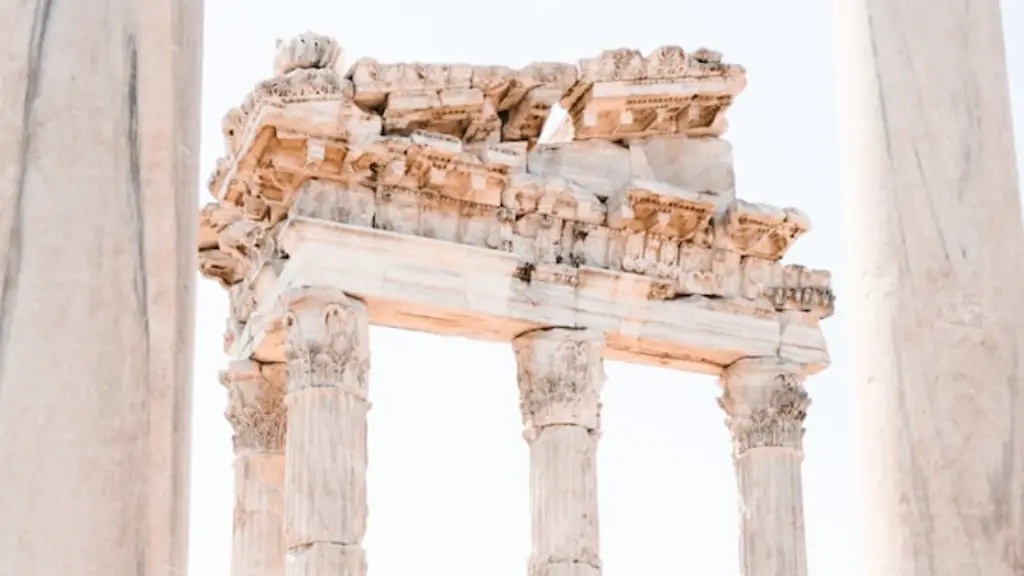Introduction: From humble beginnings, the Roman legal system has had the most lasting impact in western culture. The Roman legal system was one of the most influential and enduring legal systems of antiquity. As one of the most advanced legal systems in the classical world, the rule of law in ancient Rome served to bind its subjects together and afforded them stability and protection within a structured society.
The World of Roman Law
The Roman legal system was marked by its complexity and familiarity with the myriad legal authorities at its disposal. Under the supervision of legal experts, the legal system functioned beneath an overarching system of legislation, which had the sole purpose of providing protection from the effects of interpersonal conflict. It was an aim that was often achieved by means of the practice of magistrate intervention, allowing for a fair and impartial assessment of any dispute.
At its very core, the Roman legal system was based on the awareness of the fundamental necessity of the Rule of Law. This legal mobilization was seen throughout the Roman legal system. Whether it was in the enforcement of daily life on the streets of Rome, or in the interpretation of statutes, the practice of the rule of law allowed subjects to maintain a collective and consistent method of behavior. In addition, it allowed the subjects to be aware of their rights and privileges within the laws.
The Roman Legal Code
Another factor in the Roman legal system was formed through the development of an extensive legal code. The Twelve Tables, which were the first officially written code of laws, were devised by the Romans in an effort to provide a common set of laws that all citizens could abide by. Thus, the Twelve Tables provided a political solution to disputes and provided a clear legal doctrine for everyday situations and criminal cases.
Furthermore, the Twelve Tables allowed for the development of the equitable jurisprudence in the Roman legal system. This allowed the courts to look at the facts and circumstances of each case rather than the mere legal text of the law. This created an environment where laws were applied consistently regardless of their class or standing.
In addition to the Twelve Tables, the Roman legal system also included various other forms of written law such as constitutions, the Lex Iulia, the Edictum and many other statutes. These statutes provided clear definitions and explanations of the law, allowing for potential legal disputes to be court ordered rather than left purely to chance or the whim of the magistrate.
Subjugation of Precedents
The Roman legal system also relied heavily on the subjugation of precedents. This meant that when judging legal cases, Roman magistrates were required to consider not only the body of the law but all of the precedents that had been set. This allowed the Roman legal system to remain consistent and safe for all its citizens by creating a set of immutable laws that had to be followed. Consequently, this provided a degree of stability, which allowed Roman subjects to be able to think in legal terms and to a lesser extent, understand their legal rights. Further, records of legal cases were also kept, ultimately allowing the Romans to stay abreast of changing legal trends.
Procedure and Practice
The Roman legal system also included various procedural laws and practices which helped ensure efficiency in court proceedings and to make sure that justice was served. Such laws and practices included the double jeopardy clause, whereby a defendant could not be tried for the same offense twice, and the requirement for a unanimous vote of the jury as to the defendant’s guilt. All of these laws and practices provided the necessary procedure for a fair trial, allowing for justice to be served accordingly.
Accessibility of the Law
Finally, the Roman legal system was highly accessible to the public. In Roman society, all citizens regardless of their class could access the courts. This provided a platform for legal disputes to be settled without coercion or manipulation from the ruling class. Ultimately, this enabled individuals to bring disputes to trial if they felt they had been wronged.
Legacy of Ancient Rome
Due to the success and longevity of the Roman legal system, its legacy has endured throughout history. The sustained impact of the Roman legal system is reflected in the multitude of nations and societies that have absorbed its influences to this day. Whether it is the incorporation of Roman law within national laws, or the adoption of legal principles and doctrines by other systems—it is a testament to how far the reach of Roman legal system has been.
Civil Law System
The civil law system, which provides the basis for law in many countries, such as France, Germany and Italy, is a direct descendant of Roman law and incorporates many legal principles, doctrines and methods from its predecessor. Through the codification and application of the Rule of Law, the Juris Civilis provided a comprehensive set of rules and regulations, which influence most civil law systems to this day.
Major Influence for English Legal System
The Roman Civil Law was also a major influence for the English legal system. By 1189, the King of England, Richard I, granted his subjects common-law rights, incorporating many Roman legal principles and methods. The concept of equity, which is a form of soft justice, is also derived from Roman law and has been implemented as an additional means to provide justice within the English legal system.
Contracts and Law of Obligations
The Roman legal system also had a major influence on the law of obligations, which is a term that describes specific laws that detail the responsibilities and obligations of both parties to a contract. Such laws are present in many countries today and serve to provide a structure for creating lawful agreements. In addition, its influence can also be seen in countries that continue to recognize the obligations under Roman contracts as legally binding.
Criminal Law
The Roman Civil Law had a far-reaching impact on criminal law as well. Through the development of statutes such as the Lex Iulia, the standards of criminal behavior were clearly defined and codified, which has shaped modern legislation in many countries. Similarly, Roman criminal law also established rules regarding judicial proceedings, providing Roman magistrates with the necessary structure and freedom to mete out justice.
Conclusion
In conclusion, the rule of law in ancient Rome was one of the most important developments in legal history. The Roman legal system provided a framework for the protection of its citizens, including the development of procedural laws and practices, the extensive legal code and the subjugation of precedents. The lasting legacy of this legal system is reflected in the many countries today that continue to incorporate its principles and doctrines into their own respective laws.





